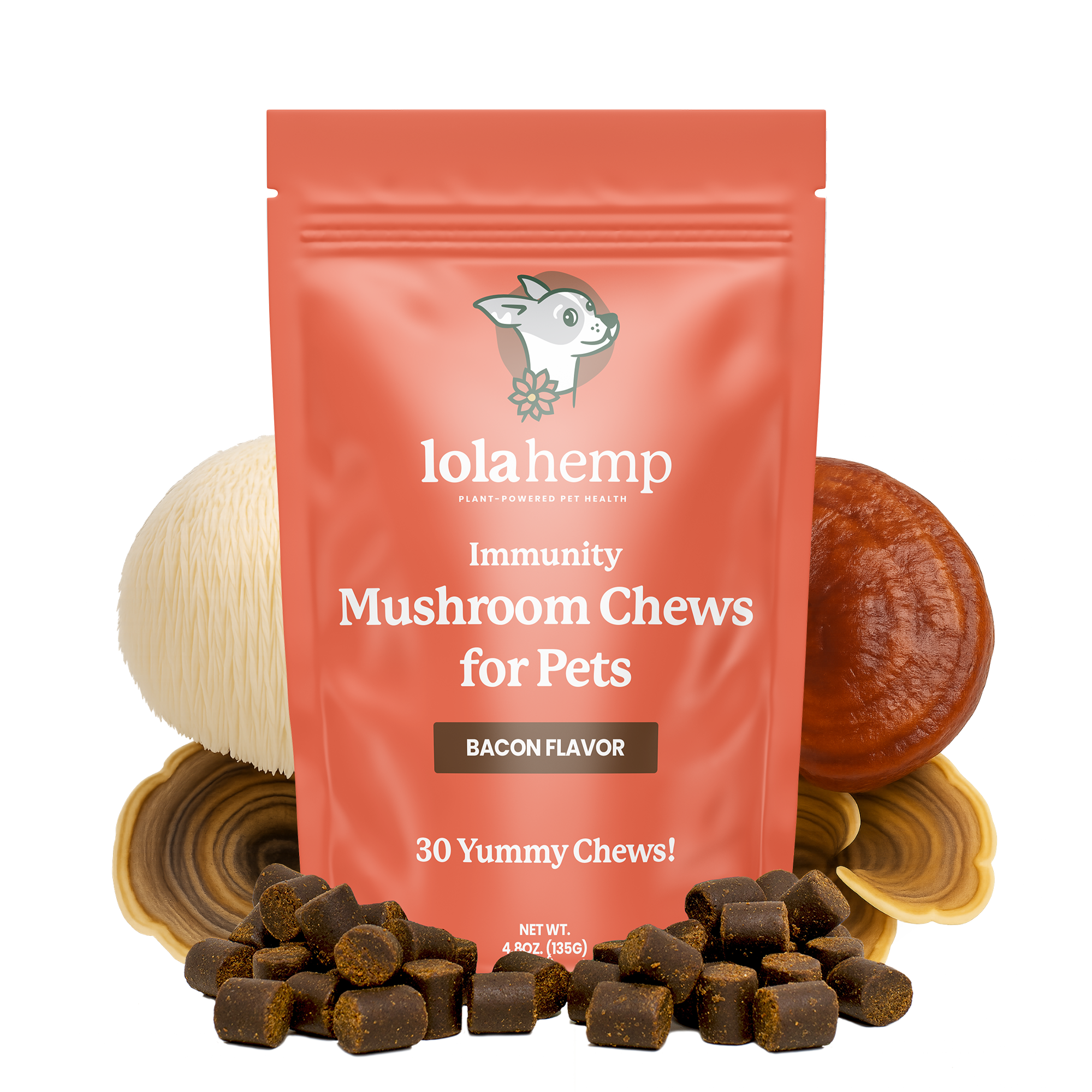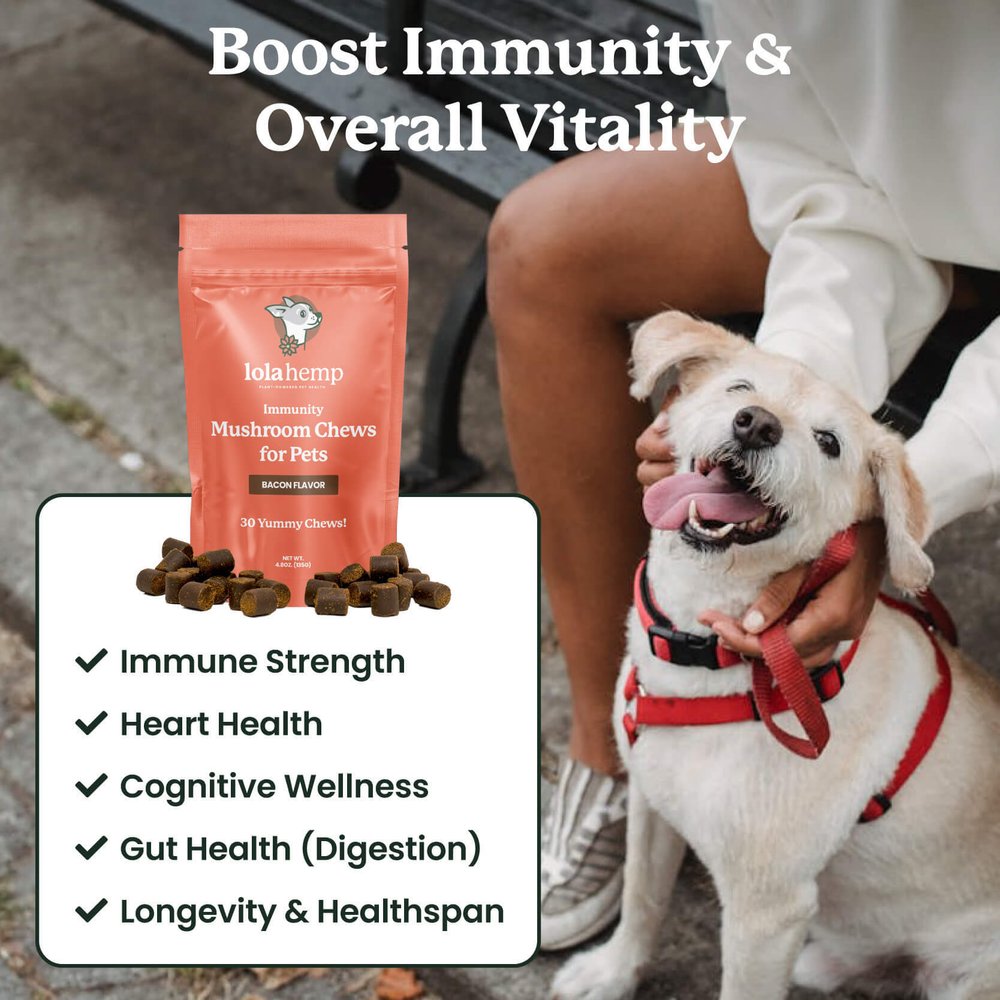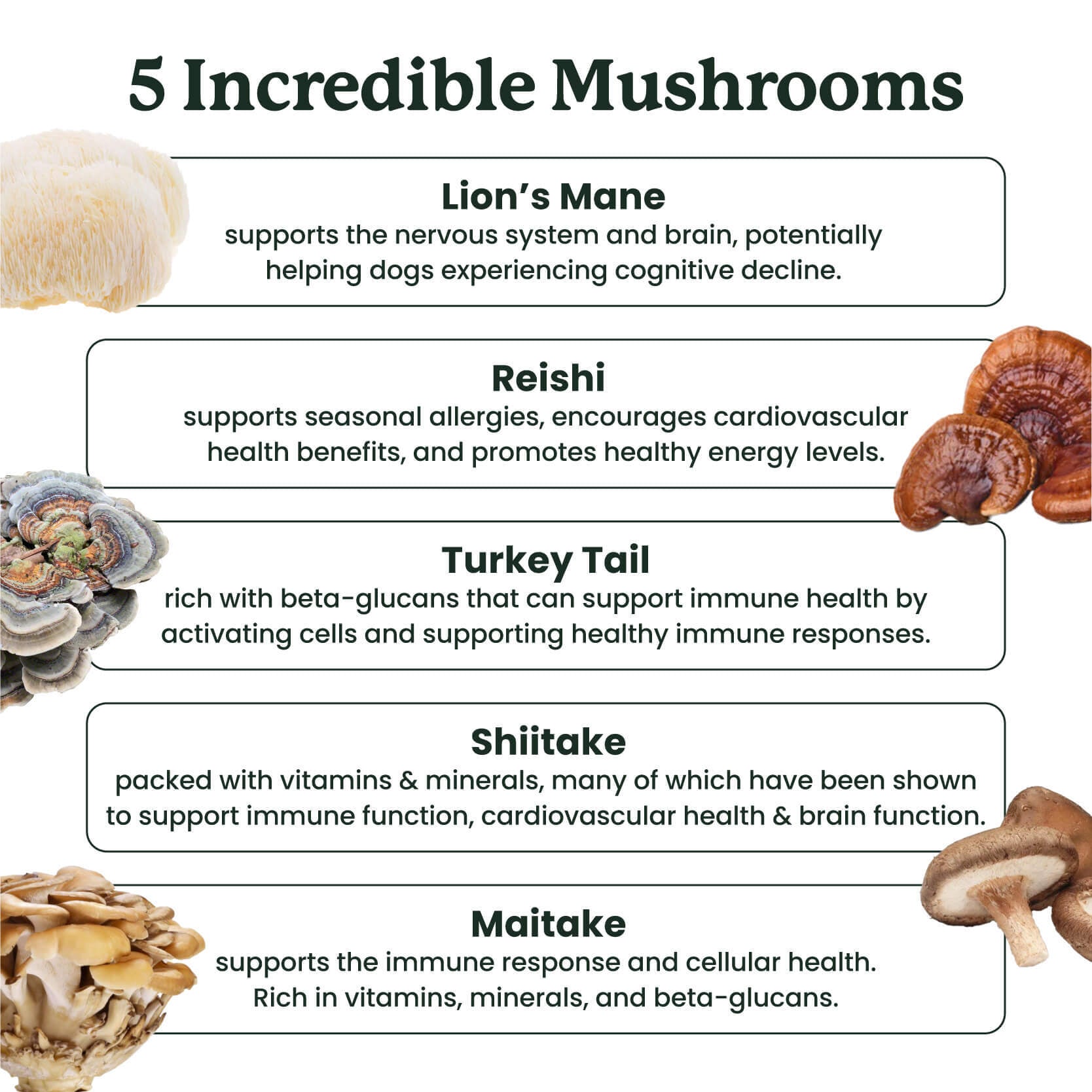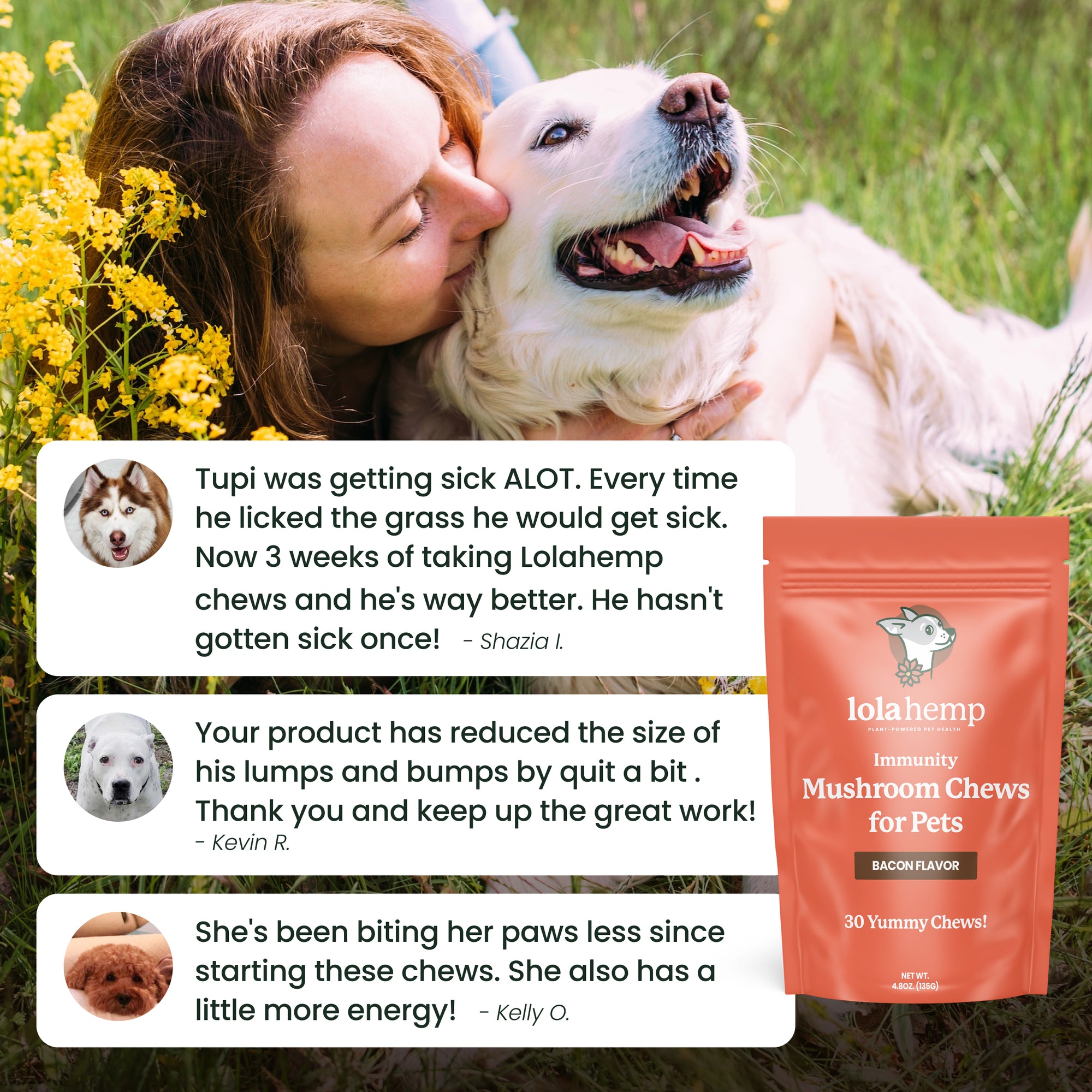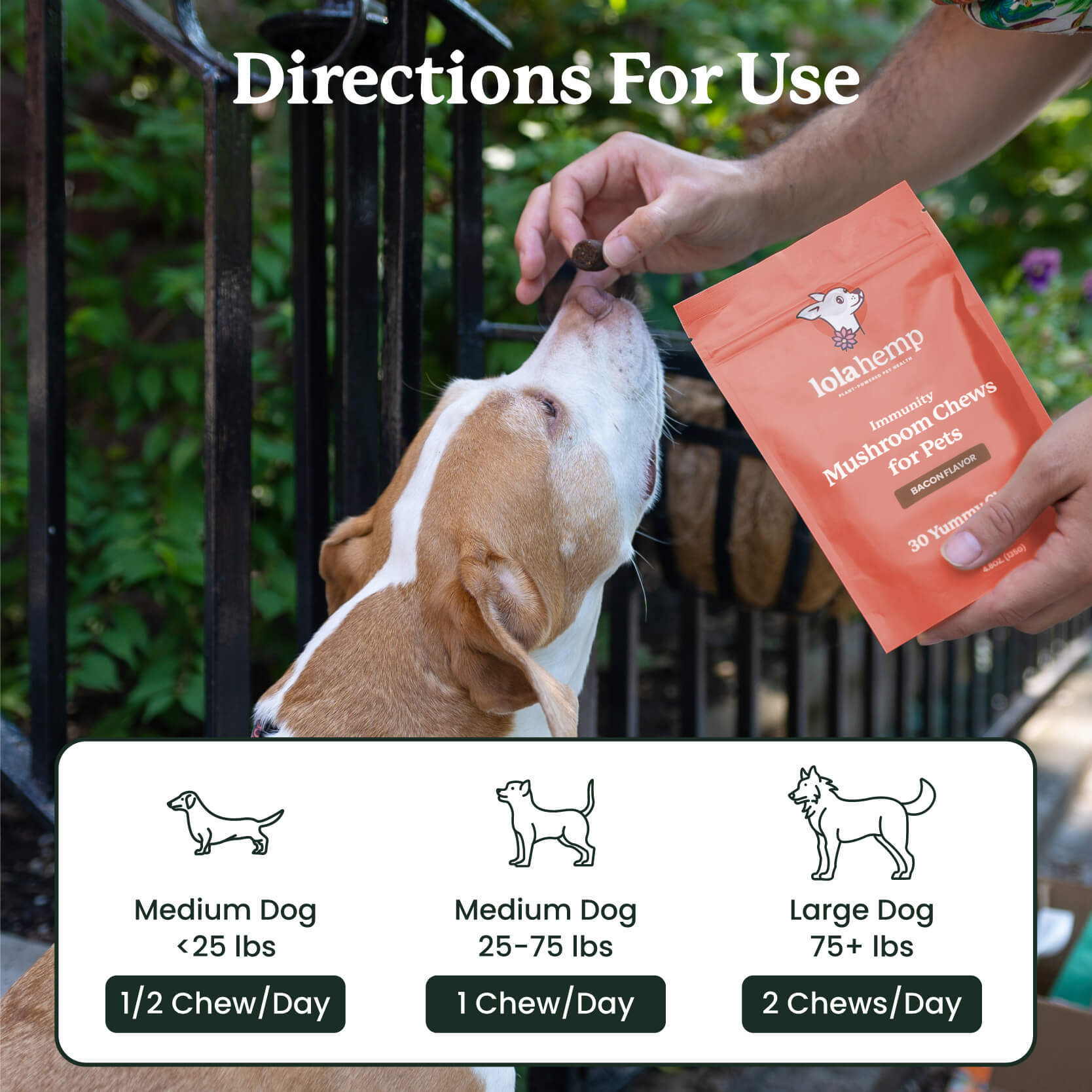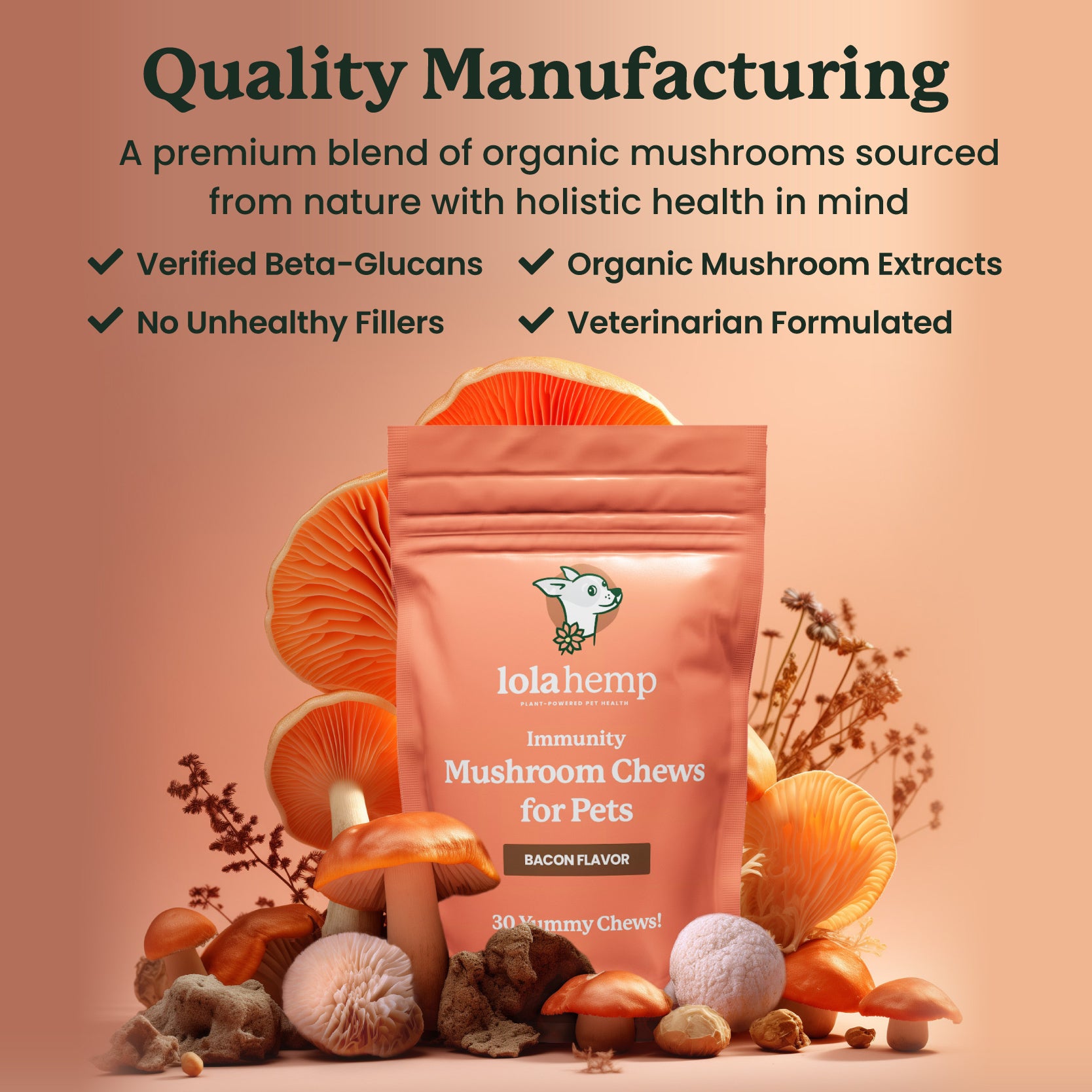Probiotics are beneficial bacteria that support a healthy digestive system in dogs. Just like in humans, a dog’s gut health is crucial for overall well-being, affecting everything from digestion to immune function.
This guide is a brief overview on probiotics for dogs, giving you the information you need to make a well-informed purchase.
What Do Probiotics Do for Dogs?
Probiotics help maintain a balanced gut microbiome by replacing harmful bacteria with good bacteria. This balance can:
- Improve digestion and reduce issues like gas, diarrhea, or constipation.
- Strengthen the immune system to help your dog fight off illnesses.
- Support nutrient absorption for better overall health.

When Should You Consider Probiotics?
Probiotics may be especially helpful for dogs experiencing:
- Digestive upset from diet changes or food intolerances.
- Stress, which can lead to gut imbalances.
- Antibiotic treatments that can kill both good and bad bacteria.
Types of Probiotics for Dogs
You’ll find probiotics for dogs in several forms, including:
- Powders: Easy to mix into your dog’s food.
- Chews or Treats: Convenient for picky eaters.
- Capsules: Can be given directly or sprinkled over food.
Look for products specifically made for dogs, as their gut needs differ from humans.
What to Look for in a Probiotic
When choosing a probiotic for your dog, keep these factors in mind:
- Strain Diversity: A good product will include multiple strains, like Lactobacillus or Bifidobacterium, to target various gut health needs.
- CFU Count: This stands for colony-forming units, which indicate how many live bacteria are in the product. A range of 1–5 billion CFUs is common for dogs.
- Added Prebiotics: Some products include prebiotics, which feed the probiotics and help them thrive in the gut.
How to Use Probiotics for Dogs
Start by following the dosing instructions on the package or your veterinarian’s advice. Introduce the probiotic gradually to avoid upsetting your dog’s stomach.
Final Thoughts
Probiotics are a great way to support your dog’s digestive health and overall wellness. If your dog has chronic digestive issues, consult your vet to ensure probiotics are the right choice. A healthy gut leads to a happy, healthy dog!
If you're still not sure about the idea of giving your dog probiotics, here are some stats related to probiotics and dog health:
-
Digestive Health:
- Approximately 10–30% of dogs experience digestive issues like diarrhea or upset stomach each year, many of which could benefit from probiotic support.
-
Gut Microbiome:
- The gut contains 70–80% of the immune system, highlighting the importance of maintaining a healthy microbiome through probiotics.
-
Probiotic Use in Pets:
- Studies show that probiotics reduce diarrhea in dogs by up to 42%, particularly during stressful events like travel or kennel stays.
-
Impact of Antibiotics:
- After antibiotic use, dogs can lose up to 50% of their gut flora, which probiotics can help restore.
-
Probiotic Benefits:
- A 2016 study found that dogs given probiotics showed significant improvement in stool quality and consistency compared to dogs without supplementation.
-
Common Triggers:
- Up to 20% of dogs experience stress-related digestive issues during events like moving, new pets, or loud noises.
Probiotics for Dogs – Frequently Asked Questions
Are probiotics safe for dogs?
Yes, probiotics made specifically for dogs are generally safe when used as directed. Always choose dog-formulated products and consult your vet if your dog has health concerns.
How long does it take for probiotics to work in dogs?
Many dogs show improvements in digestion within a few days, but full benefits may take 2–3 weeks as gut bacteria rebalance.
Can dogs take human probiotics?
It’s not recommended. Human probiotics contain strains and dosages designed for people, not dogs, and may be ineffective or cause digestive upset.
Should dogs take probiotics every day?
Daily use is common and often beneficial, especially for dogs with chronic digestive issues. Follow product guidelines or your vet’s instructions.
Do probiotics help dogs with allergies?
Probiotics may support the immune system, which can indirectly help dogs with allergy-related inflammation, but they are not a cure for allergies.

